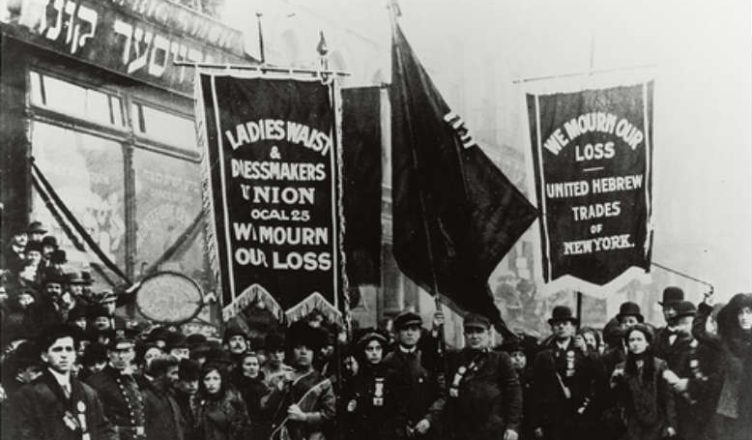March 8th is International Women’s Day. Every year, capitalist institutions, media, and politicians show their support, forgetting the Day’s working class and anti-capitalist origins.
This date actually commemorates March 8th 1909, when 129 women employees of a cotton textile factory in New York were killed when the factory boss set fire to the factory while all of them were inside making a protest demanding labour rights.
It was the German social democrat Clara Zetkin who proposed the idea of an International Women’s Day in 1910 at the International Congress of the Second International in Copenhagen. She wanted to unite women together behind the German Social Democratic Party to counter the suffragists who were concentrated only on the vote for women. Zetkin was inspired by the American initiative in response to the fire of 1909.
March 8th is therefore a celebration of resistance and commemoration of working class women’s continued oppression and exploitation. It is not a day to celebrate all the women bosses, politicians and millionaires. It is a day of struggle that it is there to recall all the inequalities, all the violence, all the oppressions of the patriarchal system which is embedded within capitalism and to make visible the struggles of women. It is especially significant at a time when rights of women and LGBT+ are under attack from right-wing groups, both religious and secular.
Statistics from all over the world show how far we are from ending oppression.
- Women in the UK do 60% more unpaid work (housework, caring for children and others) than men. This is the case even when women are working in paid employment.
- Royal College of Psychiatrists found that violence and abuse is a major cause of mental ill health amongst women and girls.
- UK mothers earned £4.44 less an hour less than fathers
- According to the International Labour Organisation: Around the world, finding a job is much tougher for women than it is for men. When women are employed, they tend to work in low-quality jobs in vulnerable conditions, and there is little improvement forecast in the near future.
- In 2015, 1 in 4 Japanese women suffered violence from a partner, according to government statistics.
- In the USA, 23 women were murdered each month by a partner.
- Worldwide, more than 650 million alive today were married as children. This continues as every year 12 million girls are married before they reach the age of 18.
- Two women a week are killed by a current or former partner in England and Wales.
- Transgender people are over four times more likely than cisgender people to experience violent victimization, including rape, sexual assault, and aggravated or simple assault, according to a new study by the Williams Institute at UCLA School of Law.
- About 215 000 violent sexual crimes were recorded by the police in the European Union in 2015. A third of these (nearly 80 000) were rapes. More than 9 in 10 rape victims and more than 8 in 10 sexual assault victims were girls and women, while nearly all those imprisoned for such crimes were male (99%).
- 81% of 10-year-old girls in the USA are afraid of gaining weight and 42% of pre-teen girls want to lose weight.
- The World Health Organization that over 200 million girls and women worldwide have been affected by female genital mutilation (FGM). An additional 3 million are at risk of FGM every year.
- Globally, girls face a greater risk of illiteracy than their male peers. Approximately 496 million adult women worldwide cannot read and write (Readingpartners.org) – this is 2/3 of the illiterate population around the world.
And yet, year after year, more and more women are saying no and fighting against patriarchy in all its forms, at work, at home, in the street. This fight needs to be against all forms of oppression and explicitly anti-capitalist. Capitalism, born from commercial expansion by force of arms during colonisation then structured around large-scale industry, developed after patriarchy, which is based on the subjection of women and which is thousands of years old. These systems of domination must be abolished. Any feminist position which does not combat capitalist exploitation amounts to maintaining in place a system which exploits women and men, which benefits from the free or underpaid work of women. Feminist, anti-capitalist, anti-racist struggles cannot be separated. That common struggle must be reaffirmed.
No social revolution without women’s liberation
No women’s liberation without social revolution

